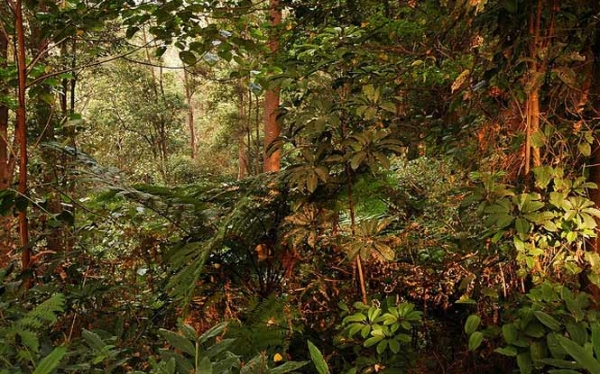Mar

Volunteering in Tropical Climates
So, you're getting ready to volunteer in a tropical climate! You're undoubtedly excited about humid treks through stunning tracts of rainforest, having access to a limitless abundance of fresh fruits and experiencing luscious warm weather every day. These perks are every bit as marvelous as they sound, but there are some things you should know if you've never spent time in the tropics before:
1) Stay Hydrated
This might be a no-brainer, but if your body isn't accustomed to the heat of the tropics, it can be much easier said than done. In many places in the tropics, water is not safe to drink. If you're living in a house provided by an organization, they very well may provide clean water. But if not, you'll have to go in search of it, whether that means buying a large receptacle or a lot of individual water bottles. Regardless, the lack of free, pure water at your fingertips might mean that you unconsciously drink less, especially if you drink a lot of water normally. It's good to be aware of this to make sure that it doesn't happen, because if anything you should be drinking more water than normal in the tropics!
Sometimes, especially if your volunteer work involves physical labor or if you're a fan of coffee or beer (which dehydrate your body), water alone might not cut it. This will be the time to embrace hydrating sports drinks like Gatorade, Sporade, and Powerade, if you haven't already. Better yet, many sweltering tropic ecosystems provide their own solution to this problem: coconuts! Coconut water is nature's sports drink, rich in energizing electrolytes. Grab a coconut after a long day's work, or better yet leave one to chill in the fridge so the water is nice and cold when you get back to your lodging. This magical hydrating elixir is guaranteed to make you feel much better after a hike than a cold beer.
2) Know the Mosquitoes
If you have adventurous friends who like to travel in remote, undeveloped places, you've likely heard some interesting stories about malaria medicine. Good doctors will ask you about the specific town and region you'll be going to, not just the country, so that they can judge whether or not you really will need malaria medicine. In a lot of countries, malaria may be present in some regions, but completely unheard of in others. If you're not planning on traveling to the areas within a country where malaria is found, then it's probably not worth the hassle of taking the medicine.
It's also good to keep in mind that the diseases present in different locations are constantly changing. The recent outbreak of chikungunya - another disease spread via mosquitoes - in some tropical countries is something that wasn't a concern for people who were traveling through these areas even as recently as two years ago. Also, external factors like climate change are beginning to affect the prevalence of diseases like dengue fever. Certain regions which haven't seen dengue cases for decades have been put on the map again within the past year or two.
The bottom line is: Don't rely on advice from people who have been there before; make sure you're acquainted with the present situation of the region you're going to. Often, the people who will be able to give you the best picture of the situation is the organization you're volunteering for!
3) Treasure Every Moment
This might be cliché, but it's useful to use this simple phrase as your mantra. Obviously different people adjust differently to new climates, but if you've never been to the tropics before, you might become overwhelmed by the fact that you're always sweating, that you need to douse yourself in mosquito spray several times a day, or that there are a lot of insects that are a whole lot bigger than those back home. Many people allow themselves to become overwhelmed by the negatives, however small they may be, especially when going through the process of adjusting to a new environment mentally and physically.
Keep this phrase in mind for moments like these. If you stop concentrating on how much you're sweating, you can start concentrating on the enchanting jungle around you, on the plants and animals and people who up to this point have been little more than stuff of legend to you, and on the breathtaking natural beauty and the resilience of the extraordinary people who live in this climate year-round. At times the heat may be oppressive and the pests may test your patience, but if you breathe and take a look around with fresh eyes, you'll realize that you're in the midst of one of the world's most exotic and awe-inspiring climates. And you'll cherish every moment.
What do you love most about the tropics? Do you have any advice for volunteers headed to this region? Let us know in the comments!






